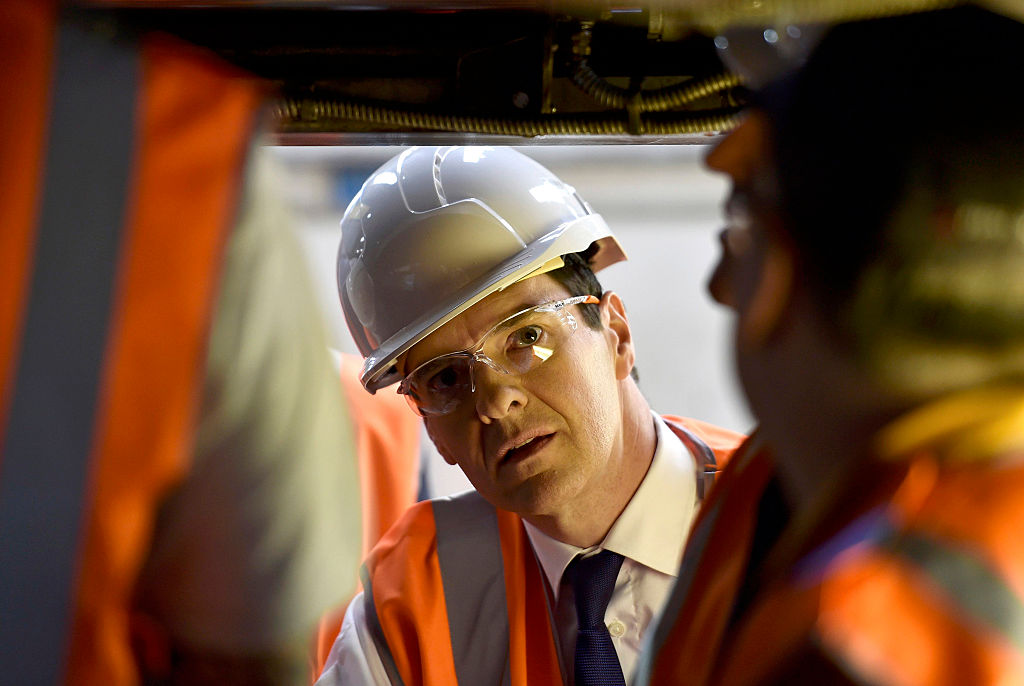Yet again this morning comes a demonstration of the enormous gulf between gloomy economic forecasts pumped out by those opposed to Brexit and much more positive data from the real world. And guess which received the biggest headlines. Britain, claims PwC, is about to miss out on a surge in global growth – the best in seven years – as ‘uncertainty relating to Brexit’ acts as a drag on the UK economy. A survey by the CBI and a recruitment firm claims that 63 per cent of businesses think that Britain will become less competitive in the next five years.
Meanwhile comes a remarkable insight into current conditions in the real economy, curiously also from the CBI. Its monthly Industrial Trends Survey reveals that orders for goods produced by British firms are at their highest in 30 years. The survey asks member firms a simple question: are manufacturing orders higher or lower than normal? It doesn’t quantify anything beyond totting up the relative number of firms answering ‘higher’ and ‘lower’, but it does give a very advanced peek into the state of the economy as tomorrow’s orders, or lack of orders, inevitably translates into tomorrow’s profits or losses.
This month, 28 per cent of firms say orders are higher than normal and 11 per cent say they are below normal. The net balance of 17 per cent might not sound dramatic, but such has been the retrenchment of manufacturing in Britain (as indeed in many developed countries) over the past few decades that this is the highest figure since 1988.
This is, of course, only the manufacturing sector. The overall health of the UK economy depends rather more on the services sector, which is not included in this survey – although real-world trends in services have likewise run well ahead of gloomy forecasts over the past 18 months. But the unexpected revival in manufacturing should come as especially good news. How many times since the 2008/09 banking crisis have we heard of the need to rebalance the UK economy away from financial services? It was a central theme of George Osborne and lay behind his fondness for being photographed in factories in a hi-viz vest.
Osborne’s gruesome forecasts for the economy post Brexit-vote have not only failed to materialise – the vote seems to have achieved what he failed to do: it really is rebalancing the economy. The main reason, almost certainly, is the fall in the pound, which has made British goods more competitive in world markets. But it goes to show what opportunities are out there if a post-Brexit Britain can seize the initiative and break down trade barriers with the rest of the world – something the EU, with its protectionist instincts, has been very slow to do. Growth in manufacturing might just help solve Britain’s productivity puzzle – it being easier to increase productivity in manufacturing than in services.
It is worth just reminding the world, by the way, what PwC said in its forecast for the UK economy on the eve of the referendum in June 2016. In the 3-4 years following the vote, it predicted, the UK economy would shrink by between 3 and 5.5 per cent relative to how it would perform if we stayed in the EU, while unemployment would rise to between 7 and 8 per cent.
We are not 3-4 years on yet, but things are not looking good for PwC’s forecasters. Unemployment is down to 4.2 per cent, the lowest in over 40 years. Employment is at its highest ever. The economy is still growing – if not as fast as in the immediate aftermath of the referendum when UK growth topped the G7. There is a very simple message from this – look at the real data, not the forecasts. Not that I am expecting the BBC, Guardian or some Remainers to take notice.







Comments